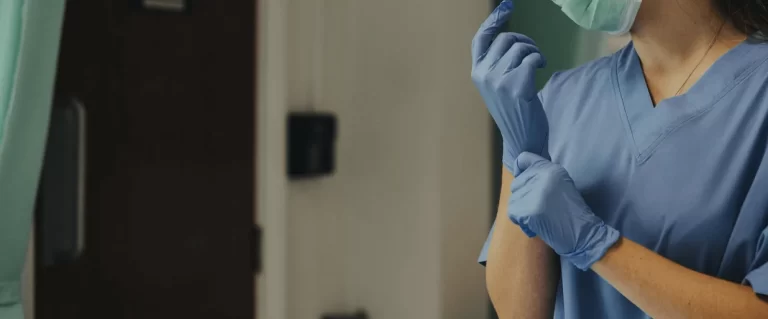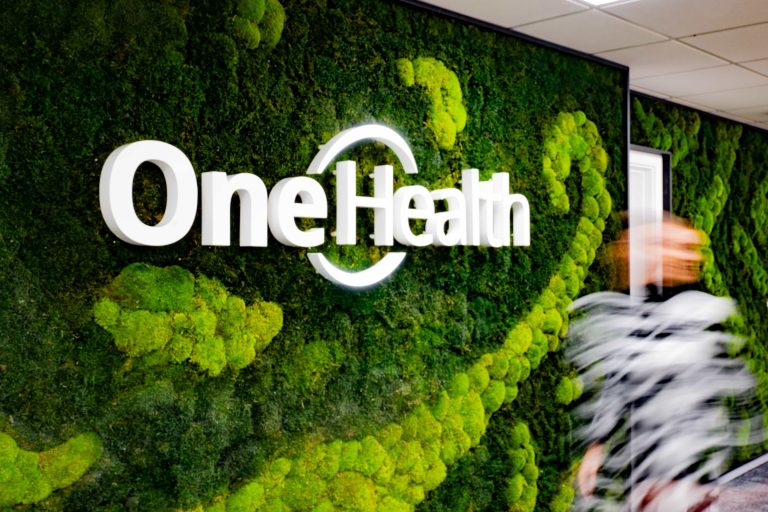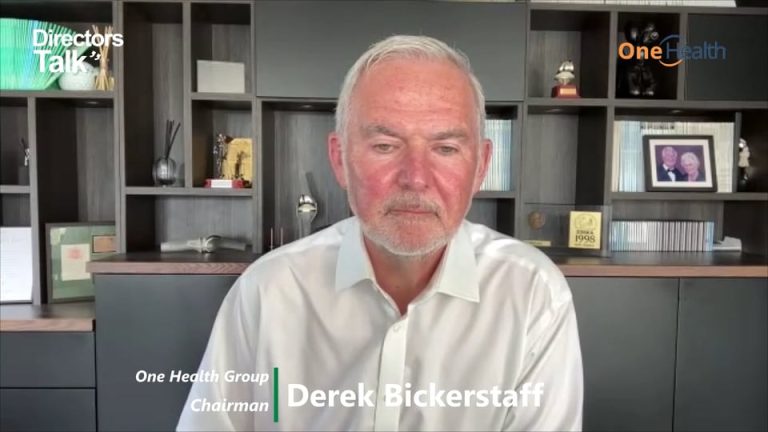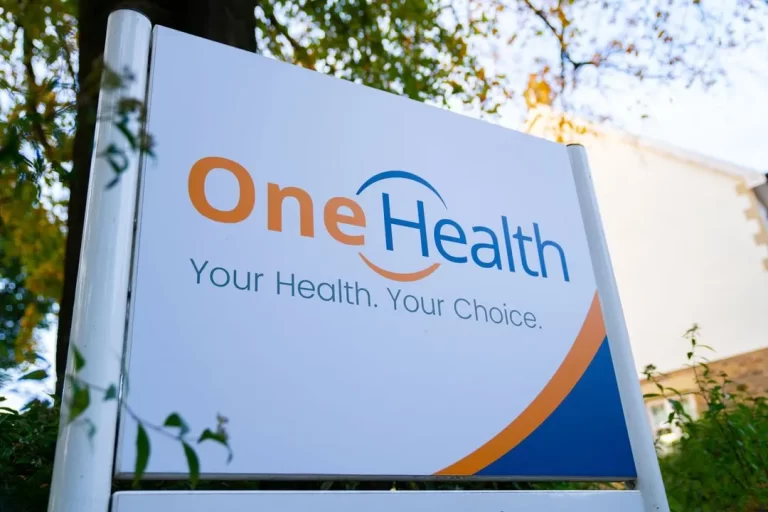One Health Group Plc (LON:OHGR) Chief Executive Officer Adam Binns caught up with DirectorsTalk to discuss the company’s strong financial performance for FY2025 and their strategic plans to develop surgical hubs to expand surgical capacity across underserved regions.
Q1: What do you think has made the biggest difference in achieving these record results?
A1: I think the simple answer is the team. I think last year in particular has been a really strong focus on growth but the way the team’s pulled together and got with the agenda has been really impressive. I’m always really proud of what I see in our team, I think we should recognise that but more so in the granular detail, it’s about the three key metrics of growth for One Health:
- Patient numbers, which you saw were 17,000 this year. It’s a new record for us which obviously reflects the demand within the NHS for services like we provide.
- Significant increase in the number of surgeons joining the group to 80. We’re going to talk about surgeons shortly but we’re now in a position whereby we are approached rather than having to look for surgeons which is a really good place to be.
- Capacity in terms of surgical capacity. So, one of the restraining factors historically is the number of available theatres that we can work within. We subcontract all our work as you know, and we’ve managed to expand that independent hospital group to nine this year which has made a big difference to growth. But importantly within that as well, with existing providers we’ve increased the efficiency. So doing more with the space we’ve already got as well as growth.
So those three factors; patients, surgeons and surgical capacity have all seen good growth which supports overall growth but managed very much by a very talented team. Very, very proud of them all.
Q2: Can you explain how this new capital will accelerate growth, particularly the plans for your first surgical hub?
A2: In the launch on AIM in March, we raised £7.8 million in total which the group to buy to the tune of £5.6 million for a couple of selling shareholders including EBT so that will supplement existing cash for your team at year-end. We had £11.4 million and a good amount of that will be used to buy the land and build us for a surgical hub.
In terms of what that looks like and it’s kind of hot off the press, we’re expecting positive planning approval back any day now. We’ve got an end of June indicative from the local council. I have to say communication has been fantastic, it’s very positive and had no objections which is unusual but reflects I think what we bring to where we’re going to be.
So, within days we’ll expect planning. We have the cash to buy the land, start building the hub, roughly a 12-year build plan so this time next year we’ll be opening to our first NHS patients.
Q3: How has the patient choice initiative contributed to the growth and how aware are GPs and patients of the option?
A3: Patient choice has been around for over 10 years now and I think it’s one of the best kept secrets in the NHS. I think in terms of government initiatives and our activity and other things, patients are now more aware they have that choice. Increasingly, they go to GPs armed with the information so when the GP says yes you need your referral for a knee to be looked at, they know they can choose the local NHS trust, an alternative NHS trust or a number of independent providers like One Health Group.
So, we work very hard into the outreach clinic network, which we’ve also expanded this year to 37, to make sure when the GP looks to refer a patient, we appeal locally to that GP and local to that patient. An important USP of our business model is we do most of the care in the community, which is also a driver of the government so rather than the hospital-centric model where every piece of activity is back at hospital, theoretically the only time a patient of One Health comes for a hospital visit is for surgery or for pre-assessment. So, most activity is in the community.
A couple of things have helped patient choice promotion. There was a government-backed national media promotion in December last year, it hit the front of the Daily Mail, Telegraph and The Times. Wes Streeting is always talking about choice and more use of the independent sector, which is really positive, as it the Prime Minister.
There’s also been a very recent adaption to the NHS app. Now, I think we all used that during the pandemic to basically prove vaccination and to retail sites and the like, but that app has now been modified to show the patient, should they need a referral, the fact that they have choice. That helped as well.
Another key point within those 17,000 patients last year, and this is about the underlying waiting list that you’ll see in the press, around 10%, so around 1,700 patients last year were from local trusts. Now, these are patients who have been to the GP previously and been referred to the NHS on a waiting list internally, not brand-new patients to the Group. That’s the balance. We’ve been approached by local trusts, which were 6 this year, to help them with their internal waiting lists. Now, they’re true waiting list patients so 10% of activity last year, around 1,700 patients, was NHS waiting list patients brought out into the independent sector to One Health for treatment and discharge. The balance from brand new patients through GP referrals.
So, patient choice is becoming better known through various promotions, but we also proactively let GPs know when we open a new outreach clinic, a new area, we make sure the local GPs know about us and what we do.
The final leg on that, the benefit to GPs of patient choice, if a patient is waiting for six months for a knee replacement, they’ll probably visit the GP three or four times for pain relief or for physiotherapy. What we try to do is make the GPs aware that if they do see patients quicker, there’s less time taken of the GP’s time with that patient returning frequently for problems.
Overall, patient choice is becoming a lot better known.
Q4: The group now works with 80 NHS consultants, up 27% from last year. What makes the group an attractive place for NHS consultants to partner with and how are you managing this growth sustainably?
A4: I think it’s important to say that One Health is primarily a clinical business. I know we’re also a commercial entity, but the safety of patients is absolutely paramount in everything we do.
So, we’re increasingly approached by consultants to come join the group, and we have some very strict criteria. Of 100, maybe 20 might get through, or in terms of the percentage that might qualify for working for One Health.
In terms of what attracts them to the group, there’s a lot to be said for that robust clinical governance, which lets them work in a safe environment. We have regular meetings into the four different specialists we’re operating. So, there’s routine ongoing clinical governance to make sure the patient’s safe. We look after the consultants, and everything they do is monitored and reported upon. We make sure we’re all driving a very safe service. That robust clinical governance is really attractive to them.
There’s also a lot to be said of the work done by the team internally. I talked about the team at the outset, but the administration team in particular do a fantastic job in managing the various complex relationships between the patient, the subcontracted hospitals, the outreach clinics, and ultimately our commissioners. So, that level of administration provides a very efficient platform for the consultant and lets them focus on the bit we want them to do, which is looking after the patient. Everything else is done for them. So, that’s also very attractive.
In terms of longer term, some of the more productive and longer-term consultants also have the potential for share options in the business. So, we listed originally on AQUIS in November 2022 and at that time, 26 subcontracted consultants had the option to take share options, and they did, and they exercised them. I think it’s very rewarding and reflects their confidence in what we do, that they’ve all held those shares and have seen that capital growth. Certainly, in the past two days, as we did our announcement on results, we’ve seen some strong growth in that share price.
So, there’s a lot of reasons to join the group, but I think the two key ones for me are the really robust political governance; it’s a very safe environment in which they can work, and the efficiency of the team deliver the employee team in the building here today to make sure all the administration is theme of thought.
It’s a very attractive proposition for them.
Q5: Now, you’ve secured five-year contracts with your largest NHS commissioners. How much confidence do five-year NHS contracts give you in future revenue stability, and do you anticipate more long-term deals like this?
A5: I think there’s a couple of angles to that.
So, we initiated the five-year contracts, and they’re now over a year old, so we did put this in place in 2024. Traditionally, in any NHS provider, which we have been for 20 years, it’s also worthwhile highlighting that we’ve never lost a contract, we’ve won lots of contracts and never lost or shrunk in any way, shape or form. Traditionally, it’s an annual renewal cycle, which is quite administrative and quite cumbersome so when we approached our two largest commissioners and we looked at a longer-term agreement, we proposed three and five years and thankfully got five years. They were quite open to the idea because it takes some burden from them as well.
So, now we have around 70% of our activity covered by five-year agreements in which we’re now a year into it, having put them in place last year. It makes the year-end renewal process very, very simple, so just rolling through. I think, interestingly, when the NHS Independent Sector Agreement was announced in January this year by the government, the NHS, it’s interesting to note that one of the drivers in that is to put in place longer-term contracts, to give suppliers like us confidence, longer term, for things like investment. So, it absolutely ties in with the investment case for the surgical hub.
We have confidence now on 70% of that £28 million over the next five years and to repeat the point, never lost a contract. So yes, that gives us a surety of revenue and therefore investment confidence to do more to support the NHS in terms of private investment or private capital to provide free care to NHS patients. So big, big step forward, I think, in terms of contracts, definitely.
Q6: Are you planning to build just one surgical hub or are more on the way?
A6: Absolutely. So, this is very much the first one, like I said, planning is expected in a matter of days, and we’ll start building in a matter of months, ready for next summer. This is the first of many, just to be really clear, the locations highlighted for building of surgical hubs are not in competition with anybody, they’re in areas where there’s under-provision of surgical capacity, be that NHS or independent sector. We’re focusing on areas with high NHS patient demand so generally less affluent areas, people who can’t afford to self-pay or self-insure, so a higher demand on NHS and therefore a higher demand on One Health.
So, this will be the first, very much the pilot one. I think we’ve done a fantastic amount of work in the past 18 months to a year to make sure that what we develop and put on the ground is a really good, robust solution. Not a hospital, it’s a really stripped-back solution, a single theatre, overnight beds, and that’s it. Everything else is now back out in the community but targeting regions where there is no current surgical capacity.
So, this is very much strategic growth. Organic growth continues with the excellent relationship with our partnership hospitals, 9 and counting and we’ve got a few more in talks at the moment, which will develop this year for more surgical capacity. Hubs are very much strategic growth in areas where there’s no provision, so we continue growing the business.










































